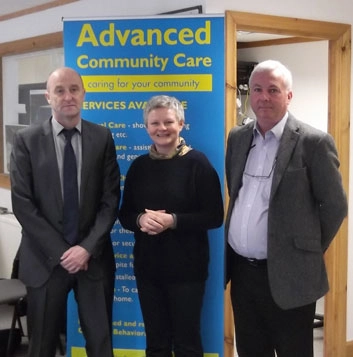Case Study
Advanced Community Care

The Company
Belfast Metropolitan College, in conjunction with Ulster University, have been working closely with the Lisburn based Independent Care Provider, Advanced Community Care.
The Company’s Director Niall Smyth, states:
We aim to deliver more than just a service to our clients, Advanced Community Care is committed to promoting independence and allowing people to remain at home for as long as possible.
Assessment of Need
The Company are currently developing an innovative new delivery model that will take advantage of the emerging technologies associated with Ambient Assistive and Connected Living.
Proposal
Through the Connected-Care initiative at Belfast Met, the Company is being supported with translating their innovative idea to market.
The proposal detailed Belfast Met working jointly with the health technologies research base at Ulster University to support the Company to translate their idea to market using the a Knowledge Transfer Partnership.
Content
As part of this process Belfast Met facilitated a visit for the Company to the Great Northern Haven, ‘Living-Lab’, managed by the Research Centre in Dundalk Institute of Technology.
The Ulster University and Belfast Met have jointly worked with the Company to submit a successful proposal to Innovate UK under the Knowledge Transfer Partnership (KTP) initiative. A KTP graduate Associate will soon be working with the Company on this innovative project to develop the technology enabled care delivery model.
Evaluation and Impact
Paul Jeffers, the technical consultant working with Advanced Community Care said:
The domiciliary care market is facing a “perfect storm” of a rapidly ageing populations driving demand, overloaded resources and smaller, more dispersed, supporting families. A more efficient way to deliver care to people in their own homes is urgently needed. Technology on its own cannot provide the answer as ultimately care is about people helping people. The key is to maximise technology to inform when people most need care and the type of care they require. It may also be used to deliver this care more efficiently and to monitor its effectiveness. This will require new and innovative thinking on both the enabling technology and the training methods used to allow the caring workforce to take full advantage of this new way of working. I’m delighted to be working closely with BMet and Ulster to help Advanced Community Care develop this much needed service for the community.
